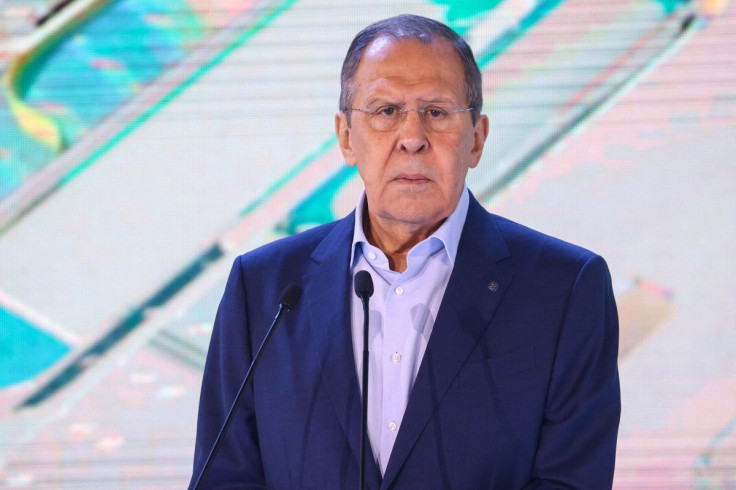Russia's Lavrov To Meet GCC Ministers In Riyadh On Wednesday, Say Officials

Russian Foreign Minister Sergei Lavrov arrived in Saudi Arabia on Tuesday, Saudi state media said, on a visit that Gulf officials said would feature a meeting with foreign ministers from the Gulf Cooperation Council (GCC) states.
Lavrov, who also visited Bahrain earlier on Tuesday, is expected to meet ministers from Saudi Arabia, the United Arab Emirates, Oman, Kuwait, Qatar and Bahrain at the GCC headquarters in Riyadh on Wednesday, two Gulf officials said.
The focus of the talks was not clear, although the officials said the six Gulf ministers would also hold an online meeting with Ukraine's Foreign Minister Dmytro Kuleba later on Wednesday. They declined to give details.
Gulf states have stayed neutral in the Russia-Ukraine conflict despite Western calls to help isolate Moscow. Oman's foreign minister said in remarks published by his ministry on Saturday that the crisis required a European solution and that a posture of "you are with us or against us" would not work.
U.S. Secretary of State Antony Blinken spoke with his Saudi counterpart Prince Faisal bin Farhan Al Saud by phone on Monday to underscore the importance of international support for Ukraine, the U.S. State Department said.
Lavrov's visit takes place a day before a meeting in Vienna of OPEC+, an oil alliance that includes Gulf producers and Russia. OPEC+ is set to stick to last year's deal that will see another modest increase in monthly output by the group in July.
Saudi Arabia and other members of the Organization of the Petroleum Exporting Countries have so far resisted U.S. pressure to boost crude output more sharply to cool prices, which have rocketed partly because of the Ukraine crisis.
Riyadh says the high oil prices are caused by geopolitics, stretched refining capacities and higher taxes in the Western world rather than supply concerns.
U.S. President Joe Biden and his team have been considering making a stop in Saudi Arabia and Israel after he travels to summits in Germany and Spain in late June, sources have said.
Two senior U.S. officials visited Saudi Arabia last week for talks that covered energy and other issues but did not include calls for boosting Saudi oil exports, the White House said.
© Copyright Thomson Reuters 2024. All rights reserved.







